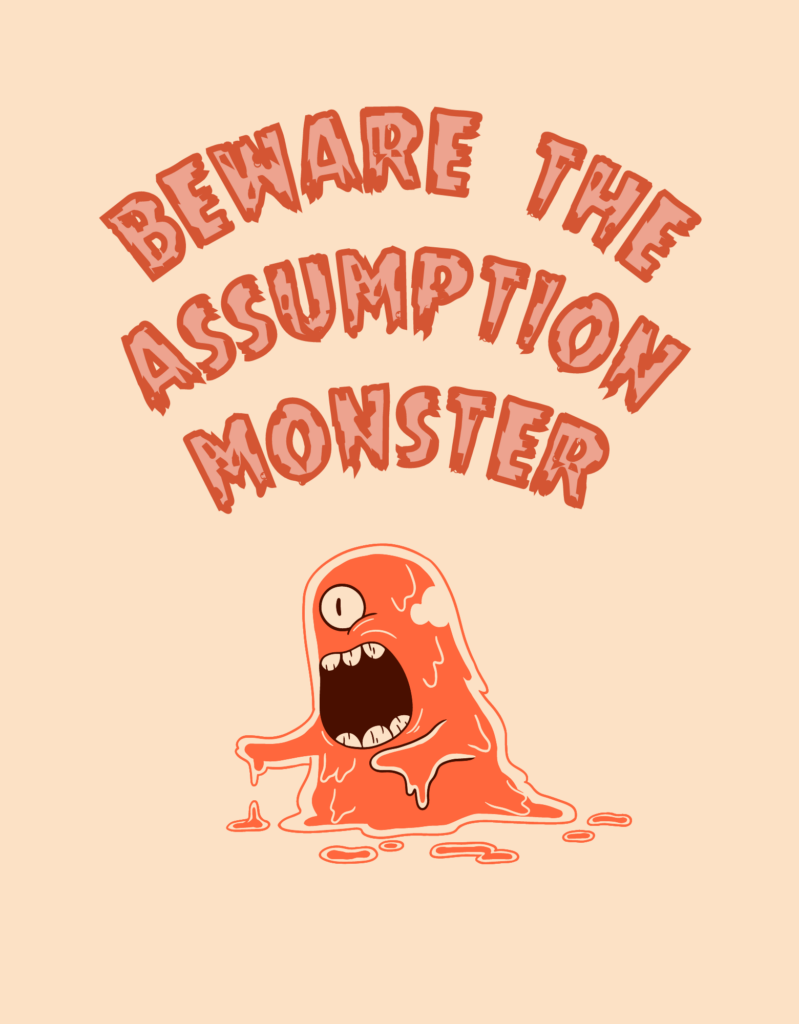One of my favorite parts of working in an agency full of expert marketers is that the challenges are always new. Every few weeks (sometimes days) a new client walks through our glass door with a business we’ve never heard of seeking our help to reach their audience. The names are always different, but the challenges are similar.
Part of the beauty of what we aspire to do at 5by5 is to keep all of this marketing stuff as simple as possible. We want to give our clients a clear message and then get it in front of the right people. That’s it.
Like most things, the longer you do this work, the more you see trends in the problems your clients face. That’s great news because it allows you to get faster and more effective at getting to the heart of a problem quickly. Doctors who have removed 100 kidneys are probably much better at finding them than ones who are just starting. I think.
But here’s the problem with noticing trends – if you don’t question them, they can turn into calloused assumptions over time. Because unlike the surgeon, the ways we reach people are constantly changing. The surgeon has the benefit of the kidney always being (mostly) in the same spot. Marketing, especially digital, is almost the opposite.
Audience assumptions go wrong
If that’s all too theoretical for you (which is totally fair), here’s some practicality. One of the most pronounced assumptions that I hear/read from people is an over abundance of confidence about which digital platforms their audience is on.
It usually sounds like this, “our audience is absolutely NOT on [TikTok, Facebook, Instagram, Reddit, etc.]!”
I’ve been hearing this one a lot lately. Chalk it up to new platforms like TikTok taking over the world (or possibly going away completely in the US), but I’ve seen a lot of confident assumptions about which platforms audiences definitely ARE or AREN’T using. The prevailing thoughts I tend to hear are that TikTok is for tweens dancing in their bedrooms, Facebook is for soccer moms, and Linkedin is for professional people with office jobs.
In some ways I wish it were that simple, but that kind of ‘my audience only uses this one platform I’ve been using to reach them for years’ thinking is what gets people stuck in the same old tactics. There’s a massive difference between a platform skewing towards a certain demographic as opposed to a platform being utilized exclusively by one.
For instance, yes, TikTok is mostly used by young people. However, 30.8% of its 1 billion monthly active users are 35 or older. That’s 308,000,000 people. That’s a whole lot of potential patients or customers.
This isn’t a stump speech for using TikTok. I could say the same thing about people who think it’s impossible to reach younger audiences on Facebook. The point of this is that digital changes too quickly for any of us to stick to our stubborn assumptions about where our audience spends their time. Platforms change quickly, so do people.
What expert marketers do about it
Honestly, I’ve been hesitant to even write this article because of how easily it will be thrown back in my face the next time I make a recommendation that isn’t groundbreaking (which let’s be honest, is often). But the reason I came around to it is because I realized that the discernment between when to question an assumption and when to just go with the standard way of doing things is what makes an expert valuable. No one wants to hire a marketing expert with no new ideas the same way they don’t want to hire an expert who spends all day pitching pie-in-the-sky billion dollar budget concepts.
Expert marketers have a skill for knowing when to stop asking questions and get on with the execution and when to pull the e-brake and challenge the foundational thinking. That’s expertise.
Stay curious a little longer
There’s no simple framework for all of this. If it were easy, everyone would do it (including AI which did not write this article).
My simplest thought on all of this is that this year could be a big one for challenging the right assumptions. Everything from the economy to technology trends to the possible explosion of front-stage AI are swirling around and underneath us. There’s never been a better time to ask yourself, “am I sure?” or as the ever brilliant Brene Brown says, “stay curious just a little longer.”

